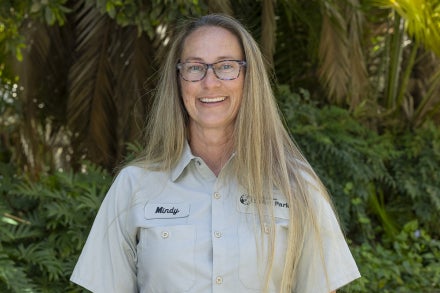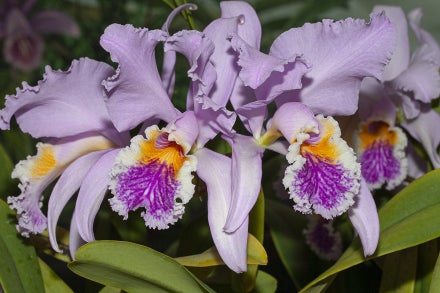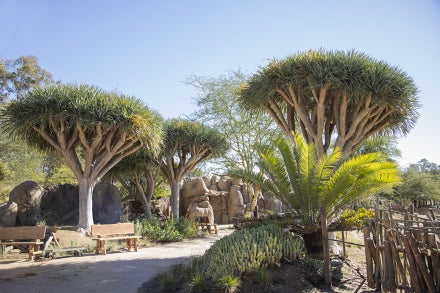
Six female southern white rhinoceros Ceratotherium simum simum at the San Diego Zoo Safari Park’s new Rhino Rescue Center are undergoing reproductive exams this week, in the first steps of a worldwide, collaborative master plan to save the critically endangered northern white rhinoceros Ceratotherium simum cottoni from the brink of extinction.
An international team of the world’s leading reproductive and genetic experts are visiting San Diego to conduct the exams and to attend meetings to discuss the next stages of this conservation initiative. Collaborators include experts from the Leibniz Institute for Zoo and Wildlife Research (IZW) in Berlin, ZOO Dvur Kralove of the Czech Republic, Ol Pejeta Conservancy in Kenya, San Diego Zoo Global and other international and domestic institutions.
“San Diego Zoo Global is pleased to welcome leading scientists from around the world to San Diego this week, to take very important steps of a groundbreaking conservation initiative to save the northern white rhino,” stated Randy Rieches, curator of mammals at the San Diego Zoo Safari Park. “San Diego Zoo Global has been working on rhino conservation initiatives for many years, and to join forces with so many prestigious partners working towards the same goal is thrilling. Conducting the reproductive exams on these beautiful, important southern white rhinos is the first step to saving one rhino species from extinction.”
The female rhinos, between 4 and 7 years of age, were relocated to the Safari Park from private reserves in South Africa in November 2015. Researchers at the San Diego Zoo Institute for Conservation Research and their collaborators are discussing possible reproductive options to save the northern white rhino, and may help to save other species as well. Possible options could include artificial insemination, in vitro fertilization, or embryo transfer. DNA materials stored in the Frozen Zoo® at the San Diego Zoo Institute for Conservation Research and the Leibniz Institute for Zoo and Wildlife Research (IZW) in Berlin could be used to develop northern white rhino embryos to be implanted in the closely related southern white rhinos, to serve as surrogate mothers.
The reproductive system of rhinos is very complex, and there is still much to be learned. There are many challenges ahead, but the collaborative team is optimistic that a northern white rhino calf could be born from these processes within 10 to 15 years.
Only three northern white rhinos remain in the world after the Nov. 22, 2015 death of Nola, an elderly 41-year-old northern white rhinoceros at the San Diego Zoo Safari Park. The northern white rhino is the world’s most critically endangered rhino, and the three that remain reside at the Ol Pejeta Conservancy in Kenya.
San Diego Zoo Global has been working for decades, along with other accredited zoos, to keep a sustainable population of rhinos safe under human care while working to protect them in sanctuaries in the wild. To further this commitment, the Rhino Rescue Center was built to house the six southern white rhinos, establishing the Safari Park as a sanctuary to protect them—at a time when an average of three rhinos are killed each day in the wild by poachers. Rhinos are poached for their horns, which are made of keratin, the same material as human fingernails. At the current rate of poaching, rhinos could become extinct in 15 years.
Bringing species back from the brink of extinction is the goal of San Diego Zoo Global. As a leader in conservation, the work of San Diego Zoo Global includes on-site wildlife conservation efforts (representing both plants and animals) at the San Diego Zoo, San Diego Zoo Safari Park, and San Diego Zoo Institute for Conservation Research, as well as international field programs on six continents. The work of these entities is made accessible to children through the San Diego Zoo Kids network, reaching out through the Internet and in children’s hospitals nationwide. The work of San Diego Zoo Global is made possible by the San Diego Zoo Global Wildlife Conservancy and is supported in part by the Foundation of San Diego Zoo Global.
CONTACT: SAN DIEGO ZOO GLOBAL PUBLIC RELATIONS, 619-685-3291




